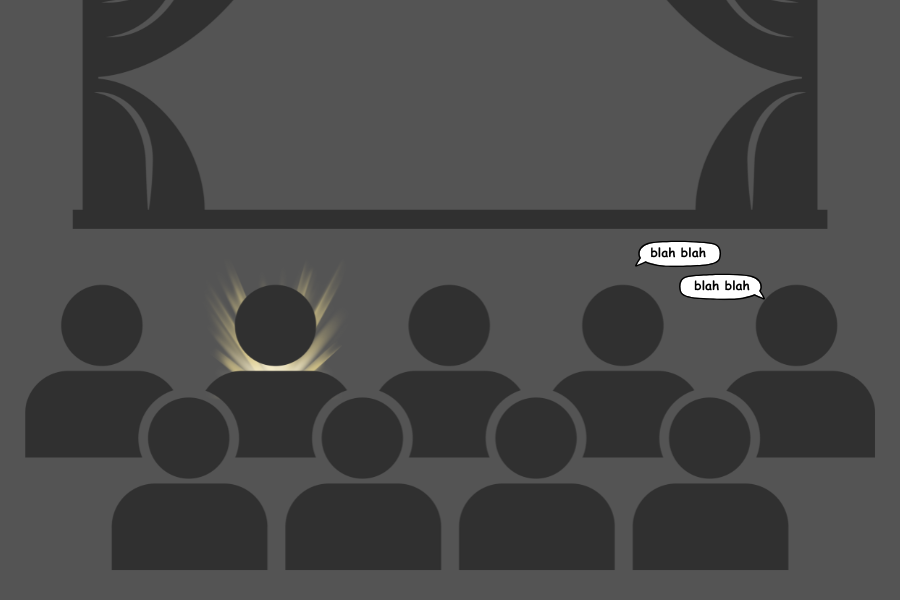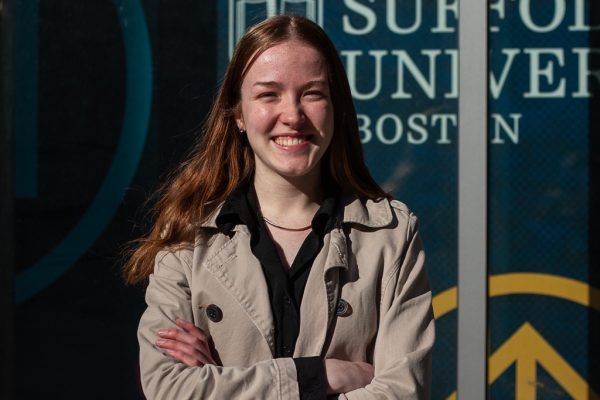2025 is an interesting year to be a student journalist.
All around me, journalism seems to face a new threat every day — lack of public trust, government officials blocking media access, increasing shutdowns of local outlets, an impossible demanding and overwhelming pace of news, the list goes on and on.
Amid so much change and turmoil, journalism is more crucial than ever before. There are so many people in power who are trying to conceal information, work in the shadows and hide their corruption.
Journalism brings the light. Our future depends on it, and the future of journalism relies on student journalists.
Student Press Freedom Day is Feb. 27. This year, the day means something different to me than in previous years. This year, I hope we can all take the opportunity to look to our future not in fear, but with the conviction to fight.
For my staff, and student journalists across the nation and world, that preparation is happening right where we’re at: our universities, the institutions we call a second home for four years.
At the end of this month, The Suffolk Journal’s editors will travel to New York City for a college media conference, where we will immerse ourselves in workshops to strengthen our reporting. We will meet with First Amendment lawyers who will guide us through legal questions and battles.
Even while standing on shaky ground, I remain extremely thankful to Suffolk University, and all universities, that have decided to abide by First Amendment protections. As a private institution, Suffolk is not obligated to do so, and many universities have chosen to take that path as well. Suffolk’s transparency and respect for the freedom of the press serve as a beacon of hope and a model for other institutions. I implore Suffolk’s administration to remain on this path and thank them for the respect and access we have been granted.
Although The Journal is one of the “lucky ones” compared to the blatant censorship attempts faced by our peers, hints of similar attitudes have occurred at Suffolk. Myself and former editors have been asked to screen contentious stories by administrators, who are involved in our funding, before publishing (we refused), and I began my time as editor-in-chief this summer facing significant proposed budget cuts to pre-2020 levels.
Private institutions like Suffolk are not required to follow the same First Amendment protections as public institutions. Administration at colleges and universities such as Emerson College and Penn State have recently taken aggressive action against free speech and student press. University of Texas at Dallas administration removed newsstands of their student newspaper. The Daily Trojan, the student newspaper at the University of Southern California, faced significant budget cuts this semester.
Colleges and universities have long been in the political spotlight: they are oftentimes an area’s largest businesses, serve as places for discourse and research, and are self-contained communities of their own. This is true even more today, while changes to diversity, equity and inclusion policies, funding for research and regulations on what students learn reach into classrooms nationwide. Nobody knows colleges better than the students who attend them, and nobody is better suited to report on these college communities than student journalists themselves.
As demands on professional journalists grow and the number of local publications shrinks, student journalists fill this gap across the nation, conducting incredible on-the-ground reporting in their communities and telling stories that would otherwise remain untold. It is an understatement to say that I am honored to be able to call myself a student journalist and to be able to contribute to this mission.
In the last year alone, the Journal has reported on the tumult in administration, the decision to arm campus police officers, campus and surrounding area protests, disciplinary actions against university police officers and so much more. We are your peers and your classmates, and my staff and I work tirelessly to report on the community we all call home.
I have one simple request of you, reader: support us. Read our work. Share it. Donate if you are able. Communicate with us. Subscribe to our weekly newsletter. Come write or take photos for us. The responsibility to protect journalism falls on all of us.














Annette Smith • Feb 21, 2025 at 12:08 pm
During these dangerous political times, I take comfort in your words and feel a new glimmer of hope for our future. Bravo! I wish you and your compatriots success in continuing your pursuit of truth and transparency.